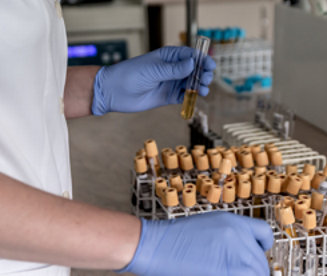Rabbit haemorrhagic disease (RHD), also known as rabbit calicivirus disease (RCD), is a viral disease that may be acute or peracute, with a very high mortality rate reaching 100% of affected population.
High mortality and the neccessity of culling not only infected individuals, but even animals suspected of being in contact with infected ones, makes RHD a serious veterinary hazard for both farmers and rabbit owners. Aforementionned hazards result in a high demand for diagnostic methods which allow for precise identification of diseased animals and their differentiation from healthy individuals.
Developed technology allows for monospecific immune sera generated by vaccinating laboratory animals with purified recombinant RHD virus antigen (VLP RHDV) to be used in ELISA tests, ensuring high sensitivity, specificity and reproducibility of obtained results.
The use of a control system consisting of a positive antigen and a negative control of the virus, as well as samples of control sera, allows for quick and accruate classification of investigated samples as either positive or negative. This in turn allows one to distinguish between healthy animals and infected individuals, without the need to cull entire population.
Technology related to offer no. 030/2017/1

